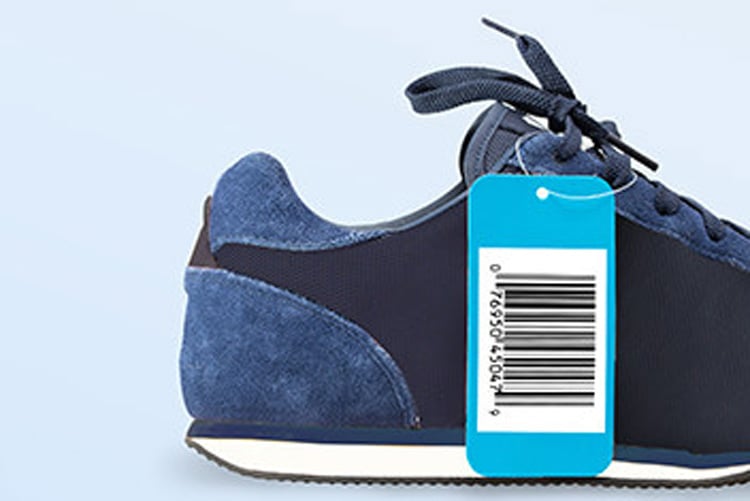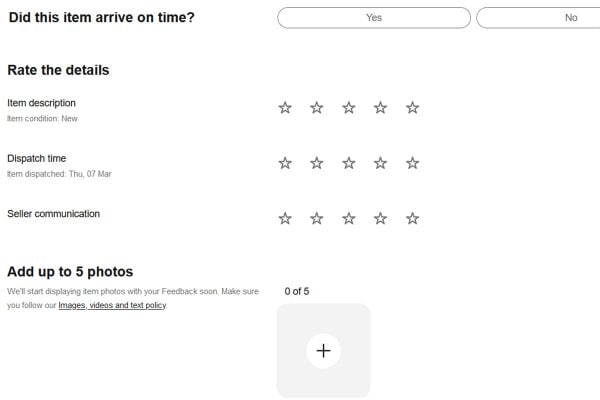eBay have been emailing sellers this week with a number of updates regarding Product Identifiers. There are a couple of dates you’ll want to be aware of and a couple of changes which may well impact how you list, encourage you to add Product Identifiers for some Brands and make other listings (specifically bundles) easier to process.
Headlines for those that don’t want to read the full article are that eBay want Product Identifiers for seller refurbished items, GTC listings with fake or incorrect Product Identifiers will fail to renew, there’s a solution for sellers listing bundles containing multiple products and a delay until further notice for ‘Does Not Apply’ to be banned and new types of Product Identifiers to be introduced.
First a quick refresher on why Product Identifiers are important on eBay (and indeed on many other marketplaces and search engines):
Why do eBay want Product Identifiers?
When you add product identifiers to your listings it gives eBay an insight into the inventory available on their site which enables them to improve the buying and seller experience. For instance if a particular model from a range is seen to be selling (based on the Product Identifiers sellers add), then eBay can promote this model more heavily compared to slower selling inventory. Product Identifiers include the Brand, MPN and GTIN.
eBay can also match listings associated with a product in the eBay catalogue with useful information, such as auto-completed item specifics. In turn, they are able to more accurately describe your items to buyers.
Benefits of eBay’s catalogue listing section may include: Better visibility in search results on and off eBay; Improved merchandising opportunities on eBay; and Links to useful product reviews and pricing guidance.
There are some brands designated by Google that eBay will always require a GTIN for. Put bluntly Google has announced that they won’t be surfacing products from these brands in search results if they don’t have a GTIN so it makes sense for eBay to insist on them also.
Key Dates and implementation changes
Immediate – Bundles
 eBay have updated the bundles and lots features so you can quickly and easily differentiate these from your other listings. Make sure you clearly identify any bundles or lots listings so they receive maximum visibility in search and our new product and browse pages.
eBay have updated the bundles and lots features so you can quickly and easily differentiate these from your other listings. Make sure you clearly identify any bundles or lots listings so they receive maximum visibility in search and our new product and browse pages.
Identifying a listing as a bundle should also remove the requirement for a GTIN.
14 September – 2017 Good ‘Til Cancelled
eBay will prevent any GTC listings with invalid product identifiers from automatically renewing after the 14th of September 2017. This means you must get your listings in good shape before then.
If by any chance you have been using invalid GTINs then get them updated before your listings fail to renew. Other checks will include things like mis-matched brands and model numbers, ensuring that MPNs only include alphanumeric characters and definitely any text along the lines of ‘compatible’ or ‘see description’ in these fields will cause your listing to fail.
eBay will also be checking GTINs for the correct number of numbers (including ensuring there are no letters or other symbols included) and verifying that different GTINs are used for each variation on multi-variation listings.
eBay will also expect to see the MPN, Brand and GTIN have different values and be checking that Item Specific fields don’t have the same name as the data field (e.g. in the Brand field, don’t enter the word ‘Brand’).
October 2017 – Seller Refurbished Items
eBay will require Product Identifiers for all seller refurbished items from October this year.
Does Not Apply
eBay are delaying the removal of the ‘Does not apply’ option from product identifier fields. This means if you still have listings that you’ve not added product identifiers to then you’ll be OK over the Christmas period.
Bear in mind that using ‘Does Not Apply’ won’t do you any favours as it means that Google will not show your products in search and you’ll get no Google traffic to your listings. It makes sense to add GTINs sooner rather than later if at all possible and to use ‘Does Not Apply’ sparingly rather than as a default option.
New Types of Product Identifiers
eBay are postponing our acceptance of new types of product identifiers, such as Google, Amazon and self-created numbers. eBay will announce new plans at some point in the future, hence you can still use ‘Does Not Apply’ in the meantime.











20 Responses
Anybody know of an easy way to search for all listings that may fail to renew ?
What if you buy from sellers a joblot of clothes to list individually on eBay and most of the tags are missing. Hence no product identifiers. What then. Have I done a dead deal.
I sell items (multi-variation listings) that have various sizes and colours that at the moment I have added their own individual MPN’s to. However, for the main MPN number I can ONLY put in “Does Not Apply” whereas before I could just use one of the individual MPN’s. I have spoken to eBay about this and the “Does Not Apply” option is the only thing that will let the listing get re-listed, otherwise it says my MPN number is not valid and won’t let me relist!
I have LOADS of listings like this, so does this now mean that because of using “Does Not Apply” – as this is the only thing I can do – Google will no longer find or rank my listings??
Thanks eBay – NOT!!
eBay and Google’s obsession with GTIN’s for brands fails to take into account the fractured nature of many brands these days. Take for example one central to my business which is on their brand list – Motorola. To the uninitiated it’s a massive American communications monolith – not these days though, it was split into two entirely separate companies in January 2011.
Both companies sport the Batwing logo and Motorola name, but are completely separate otherwise.
1. MOTOROLA MOBILITY – The mobile phone arm, which was subsequently sold to Google and is now owned by Chinese PC maker Lenovo. This is essentially a retail business and I’m sure products probably have GTIN’s.
2. MOTOROLA SOLUTIONS – The radio communications business which is listed on the New York Stock Exchange. They make walkie talkies, infrastructure and other communications equipment. They are not a retail business and sell via indirect dealers and directly to governments. I have never seen a GTIN for any of their products.
I sell used Motorola (Solutions) two way radios and a wide range of spare parts for their equipment. My category, Radio Communication Equipment is one that will require GTIN’s and my main brand Motorola has a blanket requirement for GTIN’s. My products don’t have GTIN’s, they have manufacturer part numbers and model names.
It would appear that eBay are going to wreck my business from September. All this so they can catalogue and price match low end mobile phones from a Chinese manufacturer who happen to have inherited the rights to stick a batwing logo on their products.
eBay need to stop this craziness and realise that these GTIN policies are utterly inappropriate to some products and brands.
I sell antiques and collectables; does this mean that non of my listing will come up on google.
would be nice to see those listings with “Does Not Apply” be excluded from search results, or put straight to the bottom of the results.
I assume this does not affect the smooth running of the art and antique categories where you do not even have to add ‘does not apply’ ?
I cannot find the “bundle listing” box as shown on the screenshot. Any idea where it is?
Thanks
Max
Where are the tools to help sellers identify which listings have fake gtns or listings which will fail? If they can identify the fakes, why don’t they just change them? Why are sellers being asked to do the work to make up for ebay’s google penalty?
The utter joy of ebay is its selection across a spectrum of value. The cataloguisation of the inventory risks killing that and turning it into a rubbish version of amazon.
Analyst reports that there’s 80% gtin compliance on the inventory — that’s more than good enough. Time to stop forcing the sellers to do things and give them the data and tools to improve as and when they want to, and when they see the benefits of doing so.
Has anybody already jumped through all these hoops noticed any increase in their sales volumes?
@ Gav – yes – we have a few eBay shops. Although is not a perfect comparison (as we sell different items on each shop) we decided to concentrate on 1 shop first and implement all the changes on this 1 shop. Over the past 3 months this particular shop has increased over 40% (although its down this week but that’s due to people on holiday) whereas the other shops more or less “stood still”.
We haven’t had time to work on the other shops yet. I have to admit it is time-consuming but it does seem to make a difference.
One of the most effective ways to combat the fake markets is to mass serialise the original goods and empower the customers to check the originality and other product’s characteristics. Serialization is maybe the most powerful and cost effective anti-counterfeit solution, the one offered by MY-VALIDACTOR are immediately available, easy to implement and at a cost near to zero.
As you all know there is no way to bulk edit our listings to “does not apply” in the EAN field. So I changed one listing which appeared in item specifics as EAN: Does not apply. I then used the bulk editor to add my own item specifics EAN: Does not apply and it shows up in the exact same area of item specifics.
Does anyone know if this makes any difference to the threat of having our listings ended for not wasting our valuable listing time editing thousands of live listings one by one to show “Does not apply” in the exact same place? I wonder what shareholders think of this insane waste of time.
Also does this mean Google is going to be erasing vintage items from it’s search results or are we expected to create product identifiers between ourselves? I’m told this very problem has been an absolute nightmare for Amazon sellers plagued by duplicates.
I need help… I am confused – I have a lot of multi variation listings, (listed through Multi channel software)
EG:
Each product (ie Thomas Pyjamas) – comes in 4 sizes (ie BOYS_ 1, Boys_2 etc
EACH Variation has its own 13 digit EAN
EACH variation has its own Custom label (SKu)
However, the product (all 4 sizes together) only has 1 MPN (as that is the style of the item not the individual size / colour) (they mostly have _ and / in as well, which is a PITA as I will need to remove these, as I did not realise they were only allowed alpha numerical) –
I can add an extension to the end of the MPN to make it unique for each ie Z01 25 a , Z01 25 b etc (so it is still the MPN and different from the SKU)
Looking at the ebay requirements for the new identifiers:
Use the most specific MPN available. For example, different colours of a product should have different MPNs.
However – I cannot find WHERE to put different MPN for different variations of each listing, – I have even tried doing a listing the original way of listing directly on ebay – and it only lets me put ONE MPN in for the whole listing -not one for each variation (I can of course put individual EAN and Custom SKU)…
So , am I reading that wrong? – or are all my Variation listings going to fail as I only have one MPN on the listing, rather than one each size / colour
HELP……..
I thought folks might be interested in this. I have taken one of our shops and added EAN number to about half of the items – the other half still has “does not apply” selected.
This was on the 1st and 2nd of August.
The items WITH the EAN numbers are now sitting ABOVE the items without in Best Match.
How?
I DONT CARE!. I could speculate but I don’t want to guess. The important thing is that our items WITH EAN numbers have already more visibility on Ebay than the items without. Thats all that matters.
We make and sell our own design of bespoke items.. How will this apply to us?